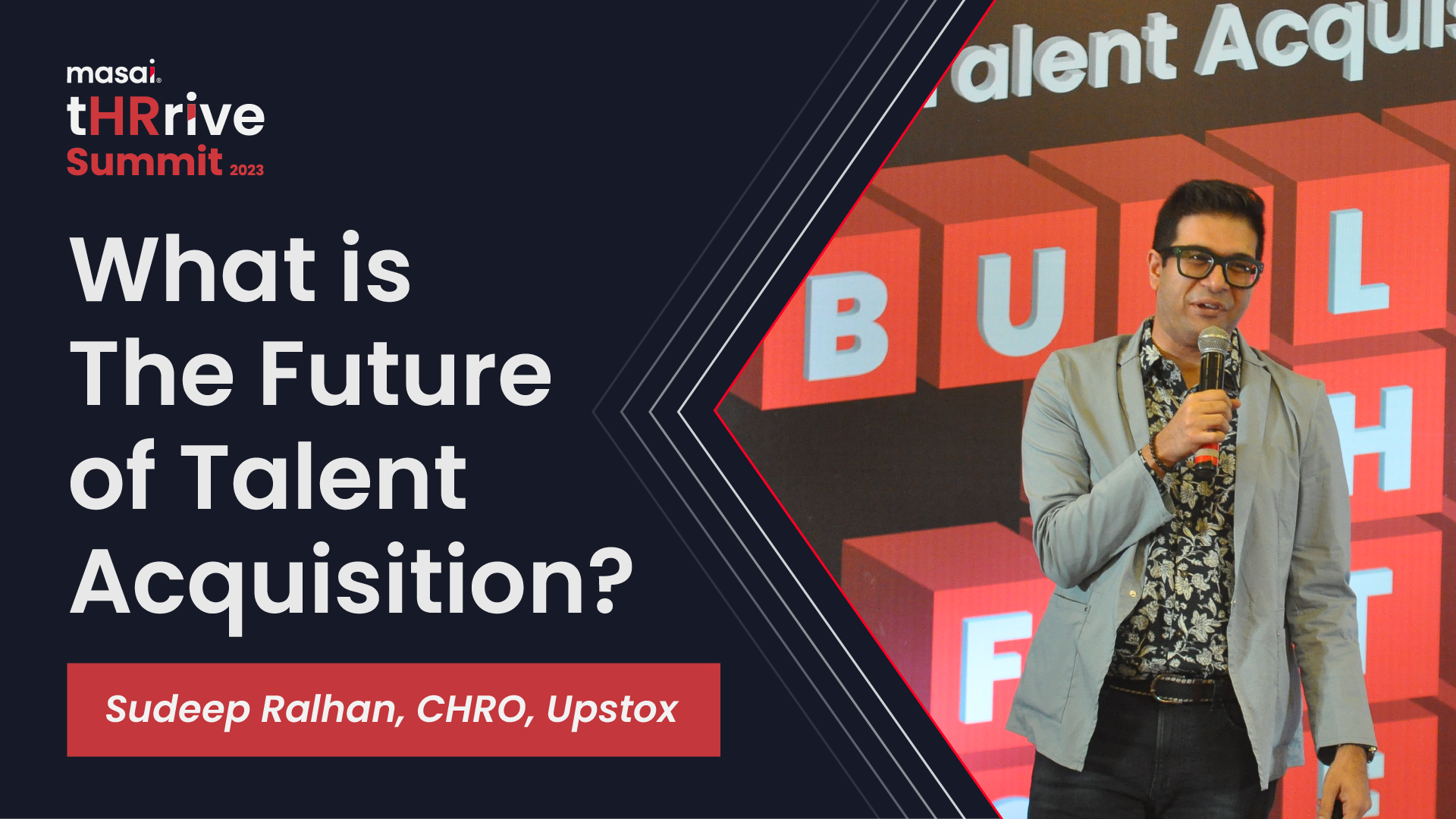What is The Future of Talent Acquisition?
As we navigate through the 21st century, technology, spearheaded by Artificial Intelligence (AI), continues to evolve at breakneck speed. In this paradigm, Talent Acquisition must adapt and mirror this progress, keeping pace with the shifting dynamics of the digital age.

The bedrock of talent acquisition was laid during the epoch of Julius Caesar (1st century BCE) and the Sung Dynasty (11th century), where referrals and entrance exams determined who was fit for specific jobs. Fast-forwarding to the Industrial Revolution (18th century), the focus of talent acquisition lay in harnessing individuals who could operate machinery and mechanical devices, though a significant challenge remained in sourcing the right talent and expediting their onboarding.
The late 20th and the dawn of the 21st century witnessed the advent of the Internet Revolution. This transformational era expanded the horizons of talent acquisition professionals, enabling them to tap into a global pool of specialised talent in an instant. Geographical limitations crumbled, and an efficient recruitment system took form, striving to match the perfect candidates with the right organisations.
As we navigate through the 21st century, technology, spearheaded by Artificial Intelligence (AI), continues to evolve at breakneck speed. In this paradigm, Talent Acquisition must adapt and mirror this progress, keeping pace with the shifting dynamics of the digital age.
At the inaugural Masai tHRive HR Summit, Sudeep Ralhan, CHRO at Upstox, elucidated his perspective on this evolving landscape. His insights from his opening keynote address echoed the need for Talent Acquisition managers to cultivate a growth mindset and extend their vision beyond their current job descriptions.
Decoding Talent Acquisition
Delving into the complex web of talent acquisition, Sudeep unveiled the intricacies of this rapidly transforming domain. He then posed a question to the audience:
“When you think of talent acquisition, what feedback and adjectives come to mind?”
The answers included “numbers,” “employer branding,” “culture,” and “fitment.”
However, Sudeep contended that the modern Talent Acquisition leader's role often entails navigating the labyrinth of contradictory feedback while trying to maintain relevance amidst constantly changing circumstances.
To demonstrate this he shared an anecdote on feedback he received while conducting a performance review for one of his Talent Acquisition managers.
“The stakeholder praised the manager, saying she was perfect, gave him what he needed when he needed it, and hit the numbers precisely. But the HR business partner said she never pushed back and just did whatever the stakeholder asked her to do.”
Staying Relevant in Talent Acquisition
For a Talent Acquisition manager to remain relevant in this ever-evolving landscape, Sudeep advocated for a deep understanding of the business, its challenges, recent developments, leadership, and culture. This knowledge allows recruiters to foster meaningful conversations and build profound relationships with candidates, thereby leading to a higher conversion of passive talent.
Jobs in Talent Acquisition today aren't solely about metrics. In this digital era, Talent Acquisition professionals are expected to don multiple hats, including that of a tech expert and analytics specialist.
“You have to be partially a techie with the amount of recruitment technology there is now. So you have to be a techie there. You have to be an analytics expert. You have to, unfortunately, know the greatest evil of modern times, which is PowerPoint.”
Planning, Not Strategy: A Talent Acquisition Manager's Perspective on Technology
In Talent Acquisition, a detailed plan serves as the cornerstone for success. Ralhan underscored the importance of leveraging technology judiciously, rather than blindly following the latest trends. He advocated for a careful evaluation of opportunity cost, effort, time, and change management before adopting new technology.
Be well-versed with the future of talent acquisition – 4 major trends to prepare for.
Technology is constantly evolving. Though adjusting to this new normal may feel difficult, there is nothing special about this time period. Although changes may occur more quickly and frequently now than in the past, HR professionals and recruiting managers have always had to adapt or risk losing out on talent.
1. Globally dispersed and remote workforces
Companies were already growing increasingly globally distributed, with many even running offices across many nations and time zones, when COVID-19 arrived and completely upended our lives. However, many companies have changed the notion of a global workforce since the pandemic began. In an effort to operate entirely remotely, businesses are now hiring freelancers and lone workers from all over the world in greater numbers.
Employing freelance talent will become increasingly more strategic for companies looking to grow quickly and agilely in the future of talent acquisition. Freelancers require far less recruiting than full-time employees because they are accustomed to working autonomously in a remote environment. They also recognise the value of being motivated and self-driven because it will affect their capacity to get employment.
2. Businesses that prioritise digital media and E-commerce need new capabilities.
Companies will need access to individuals with a high level of digital aptitude, expertise working on various workplace technologies, and the capacity to envision new digital capabilities as more elements of the company are digitally transformed.
You specifically need workers who can do:
- Analytics and data science
- Digital Marketing
- Product management for digital projects
- Social Media
It's important to remember that the pool of qualified people has decreased when making plans for the future of talent acquisition because many highly skilled and experienced individuals have "shifted" to the alternative workforce and no longer desire to work full-time.
Independent contractors and freelancers will be just as crucial for talent acquisition in the future as full-time employees. Some of the top workers will be found in the freelance market as more and more premium talent chooses the flexibility of freelancing.
3. Planning your work strategically is more crucial than ever.
The recruiter's job is quickly changing. Recruiters will need to behave more like business strategists in the future of talent acquisition rather than like sales representatives who are there to promote their organisation.
Decision-makers in HR and business must collaborate closely to coordinate company strategy and the ensuing talent requirements. To succeed overall, strategic workforce planning is essential.
4. A major role is played by technology
Most recruiters already use various digital technologies to discover candidates and conduct interviews, but these tools frequently fall short of what is needed. According to nearly 75% of recruiters (68%), better recruiting tools and technology would make their tasks easier for them.
Efficiency is one of the most important advantages when assessing new technology. Will the provided technology help recruiters save time, eliminate ineffective prospects, and point them toward the best employees? The tool's potential to increase efficiency is crucial to its value proposition, whether you're looking for platforms to direct your talent search or video technologies that expedite interviews.
Thinking Beyond Hiring
In Ralhan's view, the role of Talent Acquisition extends beyond just hiring. Progressive organisations must focus on retention, workforce planning, succession planning, and strengthening the leadership bench. He envisions Talent Acquisition as a collaborative effort, striving to create an environment with zero attrition over a given period of time.
Further, he encouraged leaders to break boundaries, invest in themselves, learn new skills, and garner new life experiences. Ralhan’s personal anecdotes brought to life his vision of Talent Acquisition not just as a mode but as a thriving function. While the modalities may change, the function's essence remains the same.
“Talent Acquisition, the way we know it, I don't think exists anymore. At least the way I knew it in the last two decades, as they reminded me, it definitely does not exist anymore. But Talent Acquisition as a function is thriving, it is no longer. I would not even call it Talent Acquisition mode. It is a talent function”
More articles from the tHRive Summit 2023:


